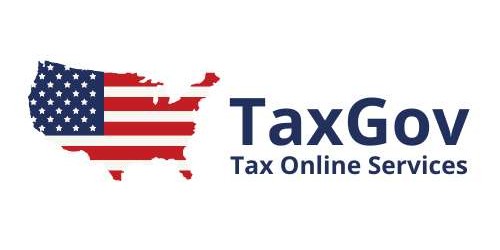Why Non-Residents Need an ITIN
Why Non-Residents Need an ITIN is a question that arises for many individuals who are working or investing in the United States but do not qualify for a Social Security Number (SSN). The Individual Taxpayer Identification Number, or ITIN, serves as a useful tool for non-resident aliens who need to fulfill their U.S. tax obligations. Without an ITIN, these individuals cannot file a tax return, which may be required if they have income from an U.S. source. Additionally, having an ITIN allows non-residents to open U.S. bank accounts and can be necessary for certain financial transactions. Understanding the necessity of an ITIN helps non-residents navigate the complex U.S. tax system and ensures compliance with federal tax laws.
How to Apply for an ITIN
How to Apply for an ITIN involves a few crucial steps that every non-resident must follow. First, it’s important to confirm that you indeed require an ITIN and do not qualify for a Social Security Number. Once this is verified, you need to fill out the IRS Form W-7, which is the application for an IRS Individual Taxpayer Identification Number. Alongside this form, applicants must provide a valid tax return and original documents or certified copies proving their identity and foreign status. It’s recommended to submit these through an IRS-certified agent or at participating IRS Taxpayer Assistance Centers to speed up processing. Understanding the application process thoroughly can help avoid common delays and errors, ensuring a smoother experience in obtaining your ITIN.
Need help getting your ITIN?
We can help you apply for your ITIN quickly and easily. Let our team handle the process for you.
Documents Required for ITIN Application
Documents Required for ITIN Application must be carefully gathered to ensure a successful application. Typically, the IRS accepts 13 documents as proof of identity and foreign status, including passports, national identification cards, and U.S. driver’s licenses. A passport alone can serve as both proof of identity and foreign status, making it the most convenient option for many applicants. Additionally, you must attach a completed federal tax return to your ITIN application unless you qualify for an exception. Ensuring you have the correct documentation will enable a smoother and more efficient application process, reducing the likelihood of delays or rejections.
Benefits of Having an ITIN
Benefits of Having an ITIN are numerous for non-residents engaging in U.S. financial activities. An ITIN not only facilitates filing tax returns but also opens up opportunities for other financial activities, including opening a bank account in the U.S., applying for credit, and even buying property. It helps in establishing a U.S. credit history which can be beneficial for future economic endeavors. Moreover, holding an ITIN demonstrates compliance with tax regulations, providing non-residents with peace of mind and potentially avoiding legal issues.
Common Mistakes to Avoid When Applying
Common Mistakes to Avoid When Applying for an ITIN can save applicants time and frustration. One frequent error is failing to include a federal tax return when not meeting exemption requirements. Another is submitting incomplete or uncertified documents, which often leads to processing delays. Applicants should ensure all forms are completed accurately and include all necessary signatures. It’s also crucial not to use an expired version of Form W-7. By being mindful of these common pitfalls, non-residents can improve their chances of a successful and timely ITIN application process.
ITIN vs. SSN: Key Differences
ITIN vs. SSN: Key Differences help clarify misconceptions about these identification numbers. The Social Security Number (SSN) is primarily for citizens and legal residents of the U.S. who are eligible to work, and it is issued for employment and taxation purposes. In contrast, the ITIN is aimed at non-resident aliens who are not eligible for an SSN but need to fulfill U.S. tax requirements. Understanding these distinctions is crucial for ensuring you apply for the correct identification number based on your residency and employment status.
Renewing an ITIN: What You Need to Know
Renewing an ITIN: What You Need to Know is essential for ensuring your tax obligations are continuously met. ITINs must be renewed if they have expired, which often occurs if they were not used on a federal tax return for three consecutive years or if they are among those set to expire. The renewal process involves submitting a completed Form W-7 and following similar document requirements to the initial application. Timing is also critical; applying for renewal as early as possible can prevent processing delays from affecting your tax return. Knowing when and how to renew reduces the risk of complications in managing your tax duties efficiently.
Need help getting your ITIN?
We can help you apply for your ITIN quickly and easily. Let our team handle the process for you.
Maintaining Compliance with Your ITIN
Maintaining Compliance with Your ITIN involves staying informed about IRS updates and ensuring that your tax filings are timely and accurate. Non-residents should keep track of any changes in their tax obligations and ITIN status, such as expirations or renewals. Proper management also includes ensuring that all information linked to your ITIN is up-to-date, particularly if there are changes in your personal circumstances or residency status. By actively maintaining compliance, individuals minimize the risk of penalties and maintain good standing with U.S. tax authorities.


